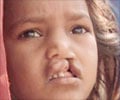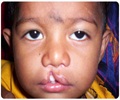UC San Diego biologists are launching a study to examine the genetics, behavior and the interaction of organisms with their environments.
UC San Diego biologists are launching a study to examine the genetics, behavior and the interaction of organisms with their environments.
They will share their insights of how modern ecology provides a scientific basis for conservation in a series of public talks presented by UCSD’s Division of Biological Sciences called Nature Matters.“Nature matters simply because nature provides us with oxygen, and clean water, and a planet at with the right range of temperatures,” said conservation geneticist David Woodruff, a professor of biology in the Division of Biological Sciences, who will give the first lecture. “Our own survival on this planet depends on our sustaining life and stewarding nature.”
Woodruff will speak about “Conservation and the Futures of Life” at the Natural History Museum in Balboa Park at 6:30 pm on Thursday, November 6. The event is free and registration begins at 6:00 pm at the museum.
"Nature, in all its diversity, sustains our habitable planet and makes it a fascinating place to live," said Steve Kay, Dean of the Division of Biological Sciences at UC San Diego. "With these lectures we hope to inform the public and help all of us to collectively choose wise actions that will preserve this richness."
A world that is fast losing species and is becoming dominated by simplified ecological communities may no longer provide humans with these “ecological services” on which we depend, Woodruff said. Conserving the complexity of nature is one goal of his own genetic work, which has revealed previously unrecognized unique populations of animals from local loggerhead shrikes that live only on San Clemente Island to new types of elephants and chimpanzees living across the globe in Africa.
Woodruff, who as a trustee for the Zoological Society of San Diego fosters conservation research at the San Diego Zoo, Wild Animal Park, and Center for Research on of Endangered Species, will also talk about the importance of zoos and parks, the need for adaptive conservation strategies in a world with a changing climate, and why he harbors hope that humans will rise to the challenges once they realize how much nature matters.
- Conservation and the Futures of Life by David Woodruff, November 6, 2008
- Life and Death Among the Flowers: the Perils and Secret Language of Bees by James Nieh, January 22, 2009
- Life on the Edge: Ingenious Survival Strategies in the Sonoran and Mojave Deserts by Therese Markow, February 26, 2009
- Climate Change and Southern California Ecosystems by Elsa Cleland, April 30, 2009
- Ants Marching: A Biological Invasion in Your Own Backyard by David Holway, May 14, 2009
RAS/C
 MEDINDIA
MEDINDIA




 Email
Email




